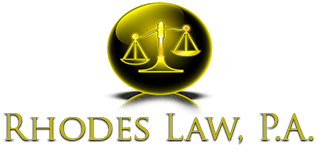Elder Law Attorneys in Melbourne Florida: What is Mediation?

Did you know that Florida has the highest percentage of senior citizens in the US? This may not surprise you, and it also may not surprise you that this population has unique needs.
As we age, it's important to consider our future and plan accordingly. This includes thinking about end-of-life care, estate planning, and other legal matters that may arise as we get older.
That's where elder law attorneys in Melbourne, FL, come in - they can provide guidance on navigating these complex issues. One tool that is often used in elder law is mediation - but what exactly does it mean?
Keep reading, and we'll dive into the world of mediation and how it can benefit seniors and their families.
What Is Mediation?
Mediation is a process in which the parties to a dispute meet with a neutral third party, the mediator. There they discuss their differences and try to reach a resolution. The mediator does not make decisions for the parties or impose a settlement, but rather assists them in reaching their own agreement.
The mediation process is confidential and voluntary. Parties may choose to mediate because they want to avoid the time and expense of litigation, or because they want to maintain control over the outcome of their dispute. Mediation can take place at any stage of a dispute, even after it has been filed in court.
Where Does Mediation Occur?
Mediation is typically conducted in an informal setting, without the need for attorneys or other advocates. The parties themselves determine what level of participation their attorneys will have in the mediation.
In some cases, attorneys may choose to be present only to advise their clients. In others, they may actively participate in the negotiation process.
How Long Does Mediation Take?
The length of mediation varies. The amount of time it takes depends on a couple of things:
- The complexity of the issues involved
2. The willingness of the parties to reach an agreement
Most mediations last several hours or days; some may take weeks or months.
When Do You Need Mediation in Elder Law?
Mediation is often used in elder law to help resolve disagreements between family members about the care of an elderly loved one. It can also be used to resolve disputes between an elderly person and their care provider, or between an elderly person and a financial institution.
Mediation can be helpful in elder law situations because it allows all parties to openly express their concerns and needs, and to work together to find a solution that meets everyone's needs. Mediation is confidential, which means that anything said during mediation cannot be used later in court.
If you are considering using mediation to resolve an elder law issue, you should contact an experienced elder law attorney who can help you understand the mediation process and ensure that your rights are protected.
Find the Right Elder Law Attorneys in Melbourne, FL
Elder law attorneys in Melbourne, FL, can help you navigate the process of mediation if you ever find yourself needing to settle a dispute. Mediation is an effective and efficient way for parties to reach mutually agreeable solutions without the time and expense of going through a court system.
Are you looking for an elder law attorney that can help? Contact us today for more information on how we can help.
You might also like




